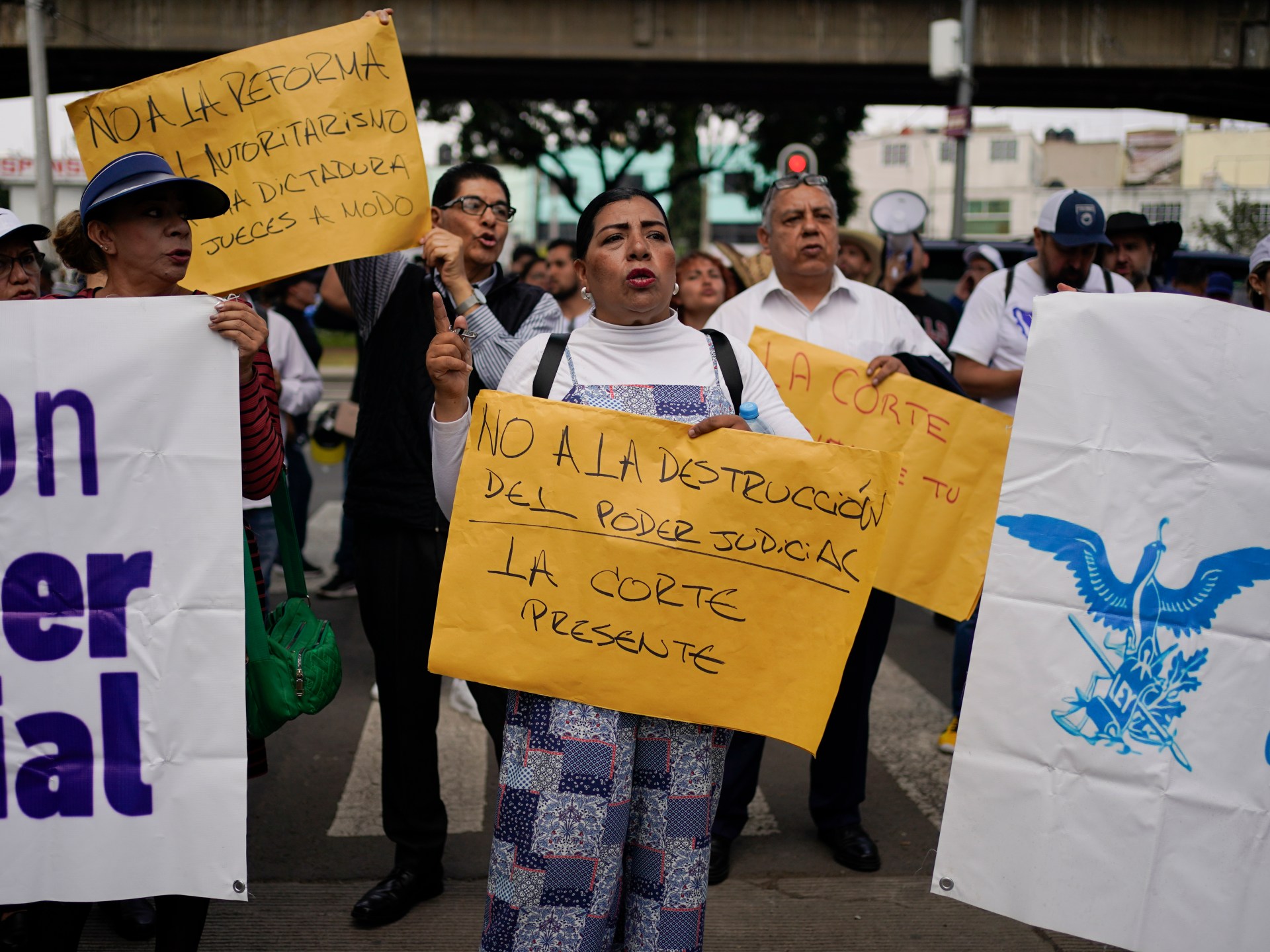Mexico’s legislature moves ahead with judicial reforms despite protests | Andres Manuel Lopez Obrador News
The changes, which would see federal judges elected by popular vote, pass in lower chamber.
A judicial overhaul championed by Mexican President Andres Manuel Lopez Obrador has cleared its first legislative hurdle with Mexico’s lower house passing the reform package despite widespread protests.
The vote on Wednesday was also held during an ongoing strike by federal court employees, justices and magistrates. Critics have warned the bill would erode the independence of the judiciary – particularly through a provision that would see federal justices elected by popular vote – and would fail to address the actual issues plaguing the system.
Opposition legislator Paulina Rubio Fernandez summed up that sentiment before the vote, which was conducted after lawmakers were forced to meet in a gymnasium as protesters blocked entrance to the Congress building.
“We should inaugurate a wall of shame that says: ‘Today begins the fall of our republic.’ And it should have the date and all the faces of the Morena congressmen,” Rubio Fernandez, said, referring to Lopez Obrador’s Morena party, which has a supermajority in the Chamber of Deputies.
The measure passed 359-135 in an initial party-line vote. It later received final approval to be sent to the Senate for further debate. Because the bill includes constitutional changes, supermajority votes are required in both chambers. The Morena party is one seat shy of a supermajority in the Senate, but the bill is expected to eventually pass.
Wednesday’s vote caps months of promises by Lopez Obrador, widely known by his initials AMLO, to push through the judicial overhaul before his six-year term ends this month. The leftist leader, who maintains widespread popularity in Mexico, will be replaced by Morena loyalist Claudia Sheinbaum, who has also defended the reforms.
Lopez Obrador has said the moves are needed to root out corruption and democratise a judiciary he has portrayed as influenced by organised crime. Several legal organisations and experts have called the approach misguided, saying prosecutors, police and public ministries are to blame for the system’s woeful state.
The United States and Canada have also criticised the reforms. On Tuesday, US Ambassador Ken Salazar said the changes “could damage relations a lot, and it’s not just me saying that”. He said the overhaul would negatively affect investment and the Mexican economy.
Lopez Obrador last week said he has put relations with the US and Canadian embassies “on pause” amid the criticism.
Popular votes and ‘hooded judges’
Under the current judicial system in Mexico, judges and court secretaries, who act as judges’ assistants, take traditional career paths, qualifying for higher positions based on their records and other factors.
The proposed changes would allow any lawyer with minimal qualifications to run to become a federal judge. About 7,000 judges, including those on the Supreme Court, would be determined by popular vote.
The reforms would also introduce “hooded judges” to preside over organised crime cases. Their identities would be kept secret to prevent reprisals. At the same time, the courts would be largely stripped of their power to block government projects or laws based on appeals by citizens.
All told, critics have said, the effort would all but certainly assure the president’s party would continue to enjoy significant political power long after Lopez Obrador leaves office.
Before Wednesday’s vote, Supreme Court judges moved to join thousands of judicial workers who stopped working last month to protest against the reforms.
In a statement, the Supreme Court judges, who are currently nominated by the president and then affirmed by the Senate, said they were undertaking a “suspension of activity”.
They added they would still hear urgent cases.
mexicos-legislature-moves-ahead-with-judicial-reforms-despite-protests-andres-manuel-lopez-obrador-news
#Mexicos #legislature #moves #ahead #judicial #reforms #protests #Andres #Manuel #Lopez #Obrador #News

